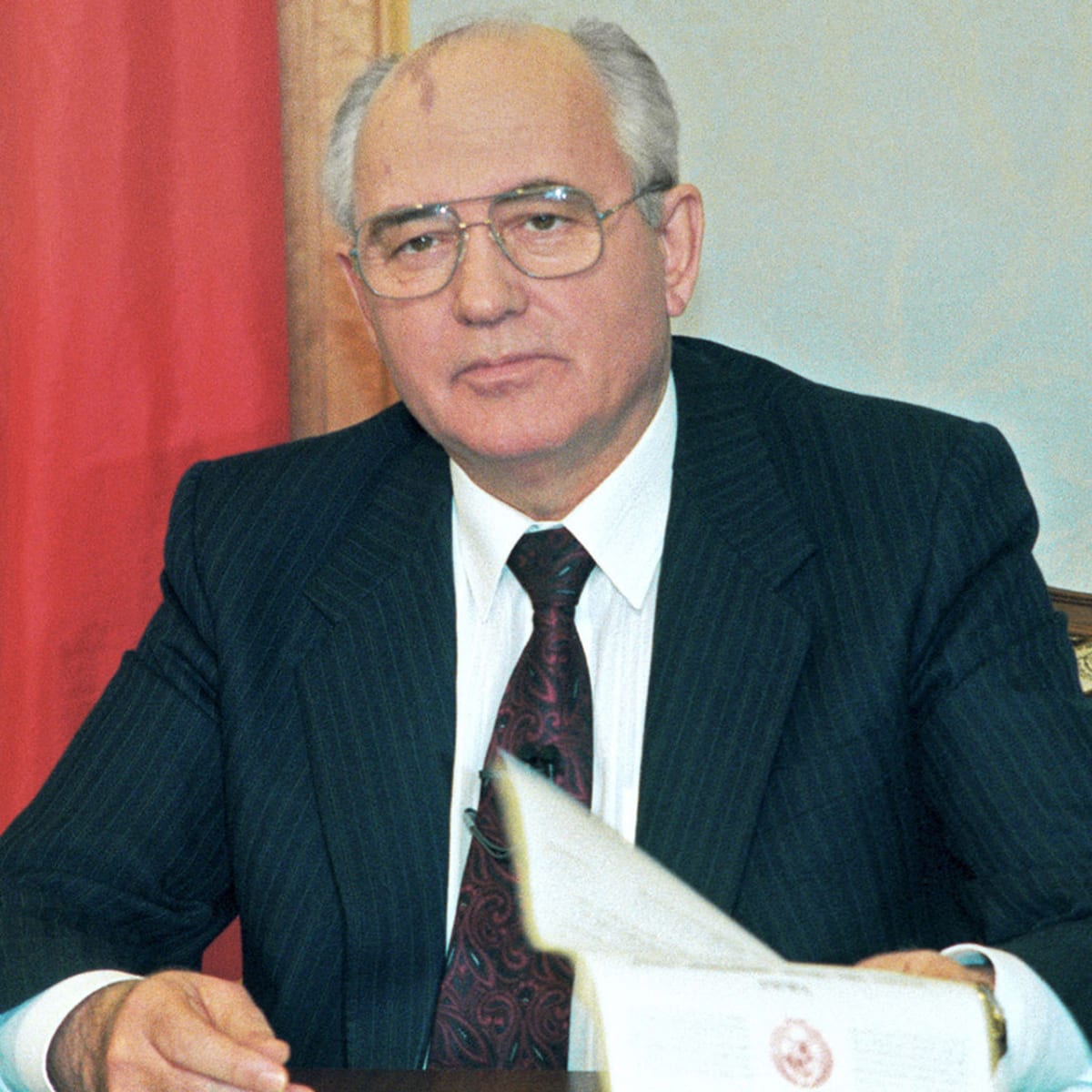Mikhail Gorbachev 1931-2022
Mikhail Sergeyevich Gorbachev, the former president of the defunct Union of Soviet Socialist Republics (USSR), who died on Tuesday, August 30, at the age of 91 in a hospital in the Russian capital of Moscow, was without doubt one of the greatest statesmen of the last century. In his lifetime, he was well known as […]

Mikhail Sergeyevich Gorbachev
Mikhail Sergeyevich Gorbachev, the former president of the defunct Union of Soviet Socialist Republics (USSR), who died on Tuesday, August 30, at the age of 91 in a hospital in the Russian capital of Moscow, was without doubt one of the greatest statesmen of the last century.
In his lifetime, he was well known as the principal architect of the dismantling of the Soviet-led Communist order in Eastern and Central Europe as well as the eventual dissolution of the Soviet Union itself. That paved way for the end of the global ideological battle between the Soviet-led Communist system and the Capitalist order which had raged on since the end of the Second World War.
Gorbachev was born on March 2, 1931 to peasant parents in the village of Privolnoye in the Stavropol region of southern Russia. As a young man, he worked in a collective farm before joining the Communist party in his area. He subsequently attended the prestigious Moscow State University, where he studied law. It was also here that he met the woman who was to be his future wife, Raisa Gorbachev nee Titarenko.
Gorbachev’s singular brilliance, hard work and commitment to the Communist party’s ideals in his area soon attracted the attention of party bosses who rewarded him with rapid promotion through the party and government hierarchy. Soon enough, he became one of the youngest rising leaders of the Communist party from which vantage point he witnessed the stagnation and decay of the Soviet Union during the leadership of Leonid Brezhnev.
His often-outspoken views about the situation in the country were shared by a good many members of the party who saw and concluded that the only way out was through total reform of the system. A boost to Gorbachev’s rising profile came from long serving head of the Soviet Intelligence Yuri Andropov who placed him and others like him in strategic party positions where his views on reforms gained much prominence and traction.
With the death of Brezhnev and the ascendance of Andropov as his successor, Gorbachev was already a key member of the Politburo, the highest ruling body of the party and government. And by the time of the death of Konstantin Chernenko, who succeeded Andropov, Gorbachev was in pole position to become the General Secretary of the party and by that, the de facto leader of the Soviet Union. Thus, in March 1985, at the ‘young’ age of 54, Mikhail Gorbachev became the youngest person after Josef Stalin at 44 years of age to rule the Soviet Union.
Gorbachev’s ascendance to power provided him with an opportunity to launch his long-held reform programme for the Soviet Union. This he did through the twin policies of Glasnost (openness) and Perestroika (restructuring). Under these far-reaching reforms, the often lethargic and centralised decision-making process of the party and government was liberalised allowing for devolution of power and decision to officials at the regions. Critically too, economic decentralization and liberalization allowed for the introduction of some form of capitalist practices in state-owned enterprises leading to the rise of entrepreneurs in the Soviet communist economy.
Another area of significant impact of the Gorbachev years which his policy of openness fostered was in the loosening of the tight control and surveillance exercised by the Soviet Union over the satellite states in Eastern Europe. A number of these states were groaning over this state of affairs and there were demands not just for more freedoms but in some cases outright independence from the Soviet-led order. To his enduring credit, Gorbachev deviated from the policy of his predecessors in violently crushing these demands
While Gorbachev’s policies were welcomed in the West, the Soviet Union and Eastern Europe where they were implemented continued to dissolve into chaos and near anarchy. By 1990 the entire Soviet-led communist order in Eastern Europe had collapsed and the following year the Soviet Union of 15 Republics followed suit thus ending communist order in Europe and much of the world. Gorbachev was awarded the Nobel Peace prize in 1990 for his role in those momentous changes. But following the collapse of the Soviet Union, Gorbachev gradually went into political oblivion as the uncertainty of the new world order ensued. And in life and death, he has continued to elicit mixed feelings. To the West he is the leader who brought freedom to the peoples of the Soviet Union and Eastern Europe, while in his homeland of Russia, many loathe him for bringing down the Soviet empire and the diminished status of Russia in global affairs which its present ruler Vladimir Putin is trying hard to restore.
To the rest of the world, however, in the words of tribute by United Nation’s Secretary-General Antonio Guterres, Gorbachev is “one-of-a-kind statesman who changed the course of history’’. While offering our condolences to his family and his country, we cannot but reflect on the ongoing war between Russia and Ukraine. We urge all sides to this conflict, which has reverberated with telling consequences across the world, to negotiate an end to this needless war. That would be the best way to honour the memory of Mikhail Gorbachev.
